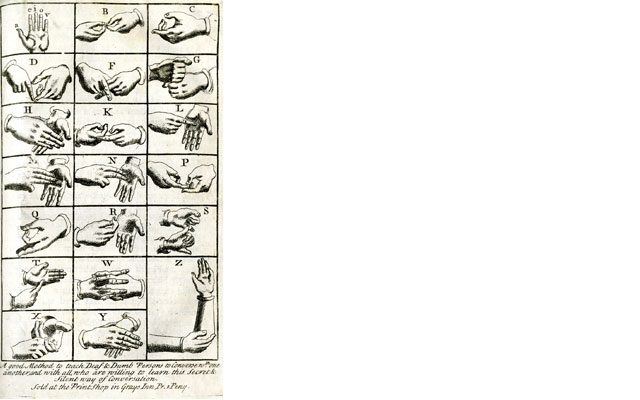
Date/Time
Saturday, October 8, 2022
9:00 am PDT – 3:30 pm PDT
Location
UCLA William Andrews Clark Memorial Library
2520 Cimarron Street
–conference organized by Helen Deutsch (University of California, Los Angeles), Jason Farr (Marquette University), Paul Kelleher (Emory University), and Jared S. Richman (Colorado College)
Co-sponsored by UCLA’s Dean of Humanities, CMRS Center for Early Global Studies, Undergraduate Education Initiatives-Disability Studies, Department of English, Department of History, and Joyce Appleby Endowed Chair of America in the World
This conference is free of charge. It will be held in person at the Clark Library, virtually on Zoom, and livestreamed on the Center’s YouTube Channel.
To attend the conference in person, you must reserve your space by submitting the booking form below. In-person bookings close on Monday, October 3 at 5:00 p.m.
To attend the virtual Zoom conference please register here:
https://ucla.zoom.us/webinar/register/WN_GAAU1QtWTaC6TwFOvInrrw
No registration is needed to watch the livestream.
All in-person attendees must adhere to the UCLA COVID-19 Protocol for Organized Events. This protocol will be in effect until further notice and adjusted as needed to respond to evolving public health conditions.
Face masks: It is strongly recommended that all attendees at indoor campus events wear a highly protective mask (i.e. surgical, N95, KN95, or KP94).
Requirements for event entry: All attendees must present proof of COVID-19 vaccination or proof of negative COVID-19 test per Los Angeles County Department of Public Health guidelines.
Over the last two decades, the cultural and historical study of disability has emerged as a vital field of inquiry, transforming how we understand various forms of corporeal and cognitive difference in the early modern period. In turn, the increasing scholarly focus on earlier periods has pressing implications for our constructions of disability in the present. This conference aims to foster two overlapping and mutually illuminating conversations: one about the role that theory plays in how we represent and interpret archival sources, and another about how the archive invites us to critique the historical assumptions and (occasional) limitations of theoretical inquiry. Among the many questions this conference will raise, we anticipate that our participants will ask: How do we define “archive,” and how is archival knowledge organized? What theoretical approaches will allow us to move forward in our uncovering of disabled pasts? How does the historical distance embodied by the archive inspire us to further diversify and complicate our theoretical models and strategies? How can sustained scholarly attention to archives of disability open up new possibilities for conversation between the fields of disability studies and medical humanities, whose relationship was aptly termed that of “frenemies” at an MLA panel some years ago? In short, how does our simultaneous embrace of the archive and theory promise to open up new horizons both for the study of early modern disability and for disability studies?
Speakers
Sari Altschuler, Northeastern University
Cornelia H. Dayton, University of Connecticut
D. Christopher Gabbard, University of North Florida
Rosemarie Garland-Thomson, Emory University
John Gulledge, Emory University
Nancy J. Hirschmann, University of Pennsylvania
Travis Chi Wing Lau, Kenyon College
Rachel C. Lee, University of California, Los Angeles
Genevieve Love, Colorado College
Megan Peiser (Choctaw), Oakland University
Katherine Schaap Williams, University of Toronto
Erin Severson, University of California, Los Angeles (University of Oxford)
Emily D. Spunaugle, Oakland University
Emily B. Stanback, University of Southern Mississippi
Lesley Thulin, University of California, Los Angeles
David M. Turner, Swansea University
Maggie Vanderford, William L. Clements Library, University of Michigan and University of California, Los Angeles
Jarred Wiehe, Texas A&M University, Corpus Christi
Saturday, October 8
9:30 a.m.
Coffee and registration
10:00 a.m.
Panel 5
Chair: Jason Farr, Marquette University
Genevieve Love, Colorado College
“Diversifying Early Modern Drama: Early Modern Disability Studies and Trans Studies”
Jarred Wiehe, Texas A&M University, Corpus Christi
“Performed/Deformed: Restoration and Eighteenth-Century Stagecraft and Experiencing Disabilities”
Katherine Schaap Williams, University of Toronto
“Early Modern Disability and Dramatic Form”
11:30 a.m.
Coffee break
11:50 a.m.
Panel 6
Chair: Cristobal Silva, University of California, Los Angeles
David M. Turner, Swansea University
“Resistance in the Archive” (Remote Presentation)
Nancy J. Hirschmann, University of Pennsylvania
“Present Theory, Past Fact”
1:05 p.m.
Lunch
2:15 p.m.
Graduate Student Panel
Chair: Sarah Kareem, University of California, Los Angeles
John Gulledge, Emory University
Maggie Vanderford, William L. Clements Library, University of Michigan and University of California, Los Angeles
Erin Severson, University of California, Los Angeles
Lesley Thulin, University of California, Los Angeles
3:30 p.m.
Program concludes
Image: The history of the life and adventures of Mr. Duncan Campbell. 2d ed. cor. London : Printed for E. Curll, 1720.
British fingerspelling alphabet chart from 1720. Each letter is accompanied by a corresponding fingerspelling sign in its own box. Most of the letters are represented by two-handed signs. The bottom of the chart reads: “A good method to teach Deaf & Dumb Persons to Converse with one another, and with all who are willing to learn this Secret & Silent way of Conversation. Sold at the Print Shop in Grays Inn.
Booking Form
Bookings are currently closed for this event.

